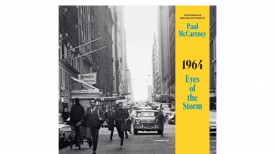'Nothing Stays Put: The Life and Poetry of Amy Clampitt' by Willard Spiegelman Book Review: An In-Depth Exploration of a Poet’s Journey to Stardom
Willard Spiegelman explores Amy Clampitt's rise to poetic fame at 63, delving into her papers and poems and revealing a woman of intellect, progressive politics, and wonder. Spiegelman unveils Clampitt's experiences and artistic evolution through her life and verse, shedding light on her years of anonymity while working for Oxford University Press and the National Audubon Society in Manhattan.
Despite decades of obscurity, Clampitt published five acclaimed books and won a MacArthur 'Genius Grant' in the final decade of her life, inspiring artists of all ages and offering a period piece of literary New York.
"Nothing Stays Put" serves as a tribute to Clampitt being the most unlikely of literary celebrities and a testament to the enduring power of artistry pursued with passion and perseverance.
The Author
Spiegelman boasts a remarkable career in academia and literary criticism. He majored at Williams College and later obtained a degree from Harvard University. As a teacher, he has given lectures on British and American literature and served as the editor-in-chief of Southwest Review.
An accomplished writer, he has written hundreds of academic articles and book reviews for esteemed journals in addition to a large number of books, essays, and memoirs. Spiegelman's work is so well-known that it gave him scholarships and awards from prestigious organizations and charities, including the Guggenheim and Fulbright.
At SMU, he received accolades such as the Perrine Medal and the Outstanding Professor Award. Celebrated during SMU's Centennial Celebration, Spiegelman retired as Professor Emeritus of English, leaving behind a legacy of scholarly excellence and dedication to literature.
READ ALSO: Five Must-Read Psychological Thrillers Penned by Female Authors
The Remarkable Journey of Amy Clampitt
Kirkus Reviews said that Clampitt's journey from a bookish child in Iowa to an internationally acclaimed poet is sensitively portrayed by literary scholar Spiegelman. Drawing on her interviews, diaries, and letters, Spiegelman captures Clampitt's early sense of displacement and her later embrace of city life in New York.
Despite struggling to find success in fiction writing, Clampitt's transition to poetry in the 1970s, spurred by activism and spiritual awakening, proved transformative. With support from mentors and a fortuitous submission to the New Yorker, Clampitt's career took off.
Spiegelman deftly navigates Clampitt's personal life, including her relationships and activism, while offering insightful analyses of her work. Through meticulous research and perceptive readings, Spiegelman delivers an exemplary literary biography that celebrates Clampitt's unlikely rise to fame and her enduring impact on poetry.
A Detailed Examination
According to an article by Santa Barbara Independent, Spiegelman meticulously examines the life and poetry of Clampitt, a poet who achieved fame late in life. Spiegelman analyzes Clampitt's Iowa roots and her subsequent rise in the field of poetry when she finally achieved great acclaim after a long, unknown period.
He vividly portrays Clampitt's life, offering insights into her personality, struggles, and artistic development. Clampitt received positive reviews for her brilliant imagery and mixed reviews about her excessive approach to her writing.
Spiegelman's thorough exploration of Clampitt's life and work provides valuable insights into the complexities of her character and the evolution of her poetic style. This biography is a great addition to the literary world and provides richer insights into Clampitt's works.
RELATED ARTICLE: 'Caliban Shrieks' by Jack Hilton Book Review: A Rediscovered Mix of Autobiography and Artful Rant
© 2023 Books & Review All rights reserved.
Popular Now
1
Books to Read After 'Fourth Wing': Top Picks for Fantasy and Romantasy Fans

2
‘The Secret Public’ by Jon Savage Book Review: An Insightful Look Into the LGBTQ Influence

3
Stephanie Regalado's 'If They Only Knew' Column Is Now A Book, Unleashing 60 Anonymous True Stories to Empower Women

4
'No Wire Hangers' Scene That Almost Did Not Happen: New Book Reveals Faye Dunaway's Struggles

5
Rare First Edition of Aphra Behn's Novel 'Oroonoko' Discovered in Kent: A Historic Literary Find

Latest Stories
Book Reviews
‘The Secret Public’ by Jon Savage Book Review: An Insightful Look Into the LGBTQ Influence

Book News
Stephanie Regalado's 'If They Only Knew' Column Is Now A Book, Unleashing 60 Anonymous True Stories to Empower Women

Book News
'No Wire Hangers' Scene That Almost Did Not Happen: New Book Reveals Faye Dunaway's Struggles

Book Reviews
‘The Perfect Couple’ by Elin Hilderbrand Book Review: A Captivating Summer Mystery

Book News
New Book ‘The Franchise’ Reveals Penguins President Kyle Dubas’ ‘Biggest Mistake’ as Maple Leafs GM











